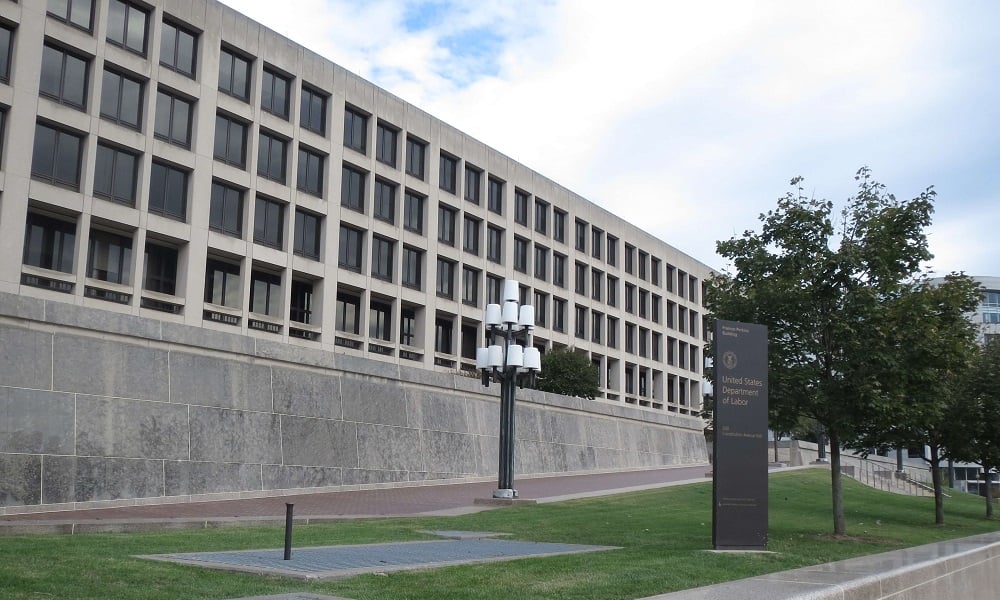California employers are subject to the mandates of family and medical leave laws, as well as minimum wage requirements.

(Image courtesy of DOL)
The Wage and Hour Division (WHD) of the Department of Labor (DOL) issued a number of opinion letters in March 2019 that provide additional guidance and clarification on a three separate employee issues. As the case is with many Family and Medical Leave Act (FMLA) issues and the Fair labor Standards Act (FLSA), the topics addressed do not impact all employers.
The Issue of Designating FMLA Leave
The current acting administrator of the Wage and Hour Division (WHD) of the DOL issued an opinion letter clarifying the DOL's position on designating and taking leave under the FMLA.
According to an article from the firm of Ogletree, Deakins, Nash, Smoak & Stewart noted that,
"The opinion letter provides that 'an employer is prohibited from delaying the designation of FMLA-qualifying leave as FMLA leave' and must notify the employee of the FMLA status of the employee's leave within five days of the employer obtaining enough information to make the determination.
Ultimately, this means FMLA qualifying leave must be designated as such and be deducted from the employee's FMLA allotment even if the employee would prefer that the employer delay the designation."
What this means for employers is that they cannot delay designating FMLA-qualifying leave, or provide additional FMLA leave, so as to allow their employees to use other paid leave first. This opinion, however, letter explicitly states the WHD's disagreement with the Ninth Circuit's Escriba v. Foster Poultry Farms decision, which held that employees may decline FMLA leave in order to keep it available for future use and use available vacation time instead before using FMLA leave.
In addition, the opinion prohibits an employer from designating more than 12 weeks of leave (or 26 weeks of leave for military caregiver leave) in a year as FMLA leave. This means that, if an employee decides to take paid leave that would actually qualify for FMLA paid leave, as opposed to unpaid FMLA leave, that paid leave would count towards the 12 weeks of FMLA entitlement and does not add to it.
An article at Mondaq.com concluded,
"For employers that currently allow employees to decide whether to use accrued paid leave during otherwise unpaid FMLA leave, it may be time to consider a revision to policies requiring use of accrued paid leave during FMLA leave to avoid offending this new interpretation of the law."
The FLSA and Wage and Hour Laws
In some states, residential janitors who live on-premises in multi-unit residential buildings, are exempt from that state's minimum wage and overtime requirements under state law. In another opinion letter, the DOL addressed the issue of if and to what extent the FLSA applies when it conflicts with state and local wage and hour laws.
Previously, if employers were found to be in violation of the FLSA, but followed a state law in their pay practices, they have often utilized a "good faith" defense, and argued that complying with state or local wage and hour laws was "reasonable grounds for believing" they were not violating the FLSA.
The opinion of the DOL indicates otherwise. According to a post from the firm Holland & Knight,
"The DOL explained that residential janitors are not exempt from FLSA's minimum wage and overtime requirements, and compliance with a state law exemption does not excuse noncompliance with the FLSA. Further, the DOL stated that an employer's compliance with a state law exemption applicable to residential janitors does not automatically constitute a "good faith" defense to failure to comply with FLSA, but noted that courts have discretion to make that determination on a case-by-case basis."
The DOL opinion letter stated that it "does not believe that relying on a state law exemption from state law minimum wage and overtime requirements is a good faith defense to noncompliance with the FLSA."
For employers, this means that it may be beneficial to re-examine their pay practices to ensure these are complying with the most favorable version of state versus federal law for employee compensation.
Pay For Employer-Sponsored Volunteering
In a third opinion letter, FLSA 2019-2, the DOL spoke to the issue of whether the time spend by an employee participating in an employer's optional volunteer program constitute hours worked under the FLSA, particularly where the employer provides a bonus to certain employees who participate in the program, or discretionary monetary awards based on the participant's volunteer hours.
The DOL expressed the opinion that participation in programs that are both charitable and voluntary do not count as hours worked under the FLSA, if the following criteria are met:
• Employee participation in the program must be truly charitable and completely voluntary, meaning that employees who do not participate in a program should not be disciplined, or conversely, provided fewer benefits than employees who do participate;
• An employer may not require or unduly pressure participation in the program, nor should it control or direct volunteer work;
• Employees must not suffer adverse consequences in working conditions or employment prospects if they do not participate in the volunteer activities;
• While an employer may offer a monetary bonus for community impact generated from the volunteer work, the bonus must not be guaranteed; and
• An employer may track participating volunteers' hours for the purpose of determining community impact, but such tracking must not be used as a tool to direct or control employees' volunteer activities.
The opinion letters issued by the DOL are useful tools for employers for understand both their rights and their responsibilities under the law. If needed in the face of a wage claim under the FLSA, employers can rely upon DOL opinion letters as a good faith defense.
In addition, employers and managers should always stay apprised of the latest guidance issued by the as an easy way to limit risks and mitigate potential liabilities.
California Employers, Labor Laws and HR Management
Because outsourcing HR functions is an increasingly common strategy for many businesses, the benefits and advantages are worth asking about.
In addition to reducing your in-house costs, increasing accuracy and security, you can also benefit by freeing your HR resources for improving operational functions, recruiting efforts, policy manuals and training.
For example, with payroll management, you have a number of options for your HR and payroll staff. Software that can be installed in-house, or cloud-based programs offer a good alternative. But if you really want to take full advantage of the benefits available to you, outsourcing to a provider like Accuchex can still be the best decision.
Reliability, full-service options, and reputation are the hallmarks of a quality HR management service provider. If you are currently looking to invest in outsourcing we can help you make an informed decision. Just call Accuchex Payroll Management Services at 877-422-2824.






